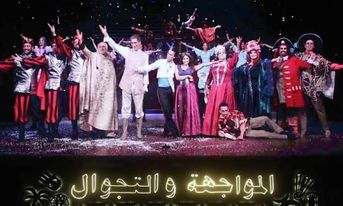Ten years have passed since the June 30 Revolution, during which Egyptians took to the streets in their millions to defend their cultural, social and religious identity and personality, things the Muslim Brotherhood regime tried to obliterate by imposing its own brand of radical Islam.
Egyptian culture witnessed what one can call ‘the return of spirit’, especially since Egyptian men of letters and intellectuals staged a sit-in outside the Ministry of Culture against attempts by the Brotherhood to usurp Egypt’s cultural life. The sit-in proved to be the nucleus of the June 30 revolution.
Since the downfall of the Brotherhood, Egyptian culture has scored many gains, on top of which the ability of cultural officials and institutions to deliver cultural services to the remotest areas.
A huge number of cultural and artistic events and activities were organised in these areas in these years to make their residents part of the nation’s cultural life. Such events were also organised in new urban communities, especially in areas constructed by the government of President Abdel Fattah El Sisi for slum dwellers, including Asmarat, a sprawling new urban community on the outskirts of Cairo that now houses thousands of families that used to live in dangerous slums in different parts of the Egyptian capital.
‘Circus of the Beast’ was the latest of these events. The show was organised by the General Authority for the Palaces of Culture on June 17. In addition to artistic and cultural events, the Ministry of Culture has worked to furnish Asmarat’s libraries and provide them with books, especially for children, and organize seminars and cultural evenings to explore children’s talents. The College of Fine Arts also hosted a number of talented primary and preparatory stage pupils from the same neighbourhood to teach them drawing and colouring.
In 2018, the Ministry of Culture launched the Theatre of Confrontation, a roaming cultural initiative that succeeded in reaching over 100,000 citizens in 150 villages. The theatre was part of the presidential Decent Life initiative.
It brought theatrical shows and arts to remote areas, including in Qena, Aswan, Sohag, Beheira, and other governorates. So far, the initiative has presented about 400 shows in 280 villages, mainly developed by the initiative, in 14 governorates.
The performances of the theatre have received a great public turnout, with the members of the public attending them in their hundreds and interacting with the actors and actresses. In many ways, the theatre initiative reflects the government’s keenness to reach citizens in deprived areas, away from Cairo’s cultural centrality, something people used to complain against in the past. The initiative is also sufficient proof of the desire of the post June 30 authorities’ desire to achieve cultural justice.
The Egyptian Opera House also organised a large number of art festivals in the governorates. In 2022, a number of music festivals were held in five governorates, for the first time, including the Minya Festival for Music and Singing and the Rasheed Festival for Music and Singing. Veteran Egyptian singers, such as Hani Shaker, Medhat Saleh, Mohamed Mouneer, Ali al-Hajjar, and Marwa Nagy participated in these festivals. The stars and the bands of the Opera House also took part in the festivals, including the band of noted musician Amr Selim. Minister of Culture, Nevine al-Kilani, said her ministry’s plan within Egypt’s 2030 strategy is based on sustainability. She underscored the role her ministry plays in increasing awareness and forming the personality of Egyptians of all ages.
“We work to increase people’s awareness of the challenges surrounding them,” Minister al-Kilani said. “Sustainability is very important in shaping awareness and developing culture, in general,” the minister told Egyptian radio in an interview. “This is why we are working on all fronts, including on discovering talents and nurturing them,” she added. She referred to the Young Creator Competition which is sponsored by First Lady Entissar El Sisi.
The competition, the minister said, is one of the most important for the discovery of talents and sponsoring winners in various fields, such as literature; poetry; plastic; art and singing.






Discussion about this post